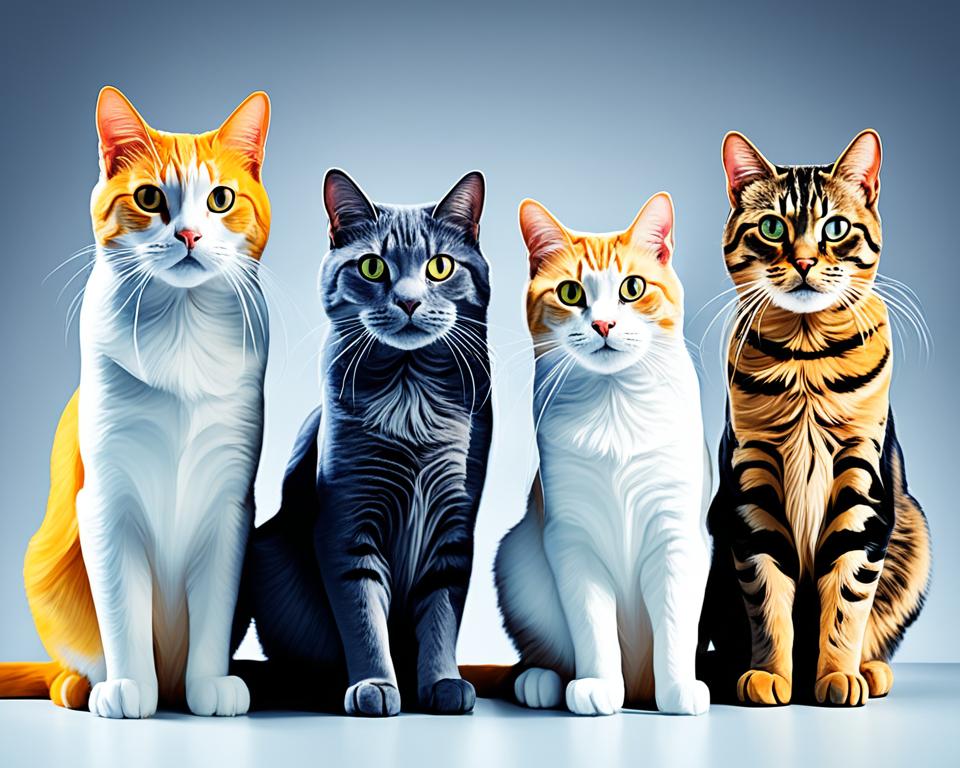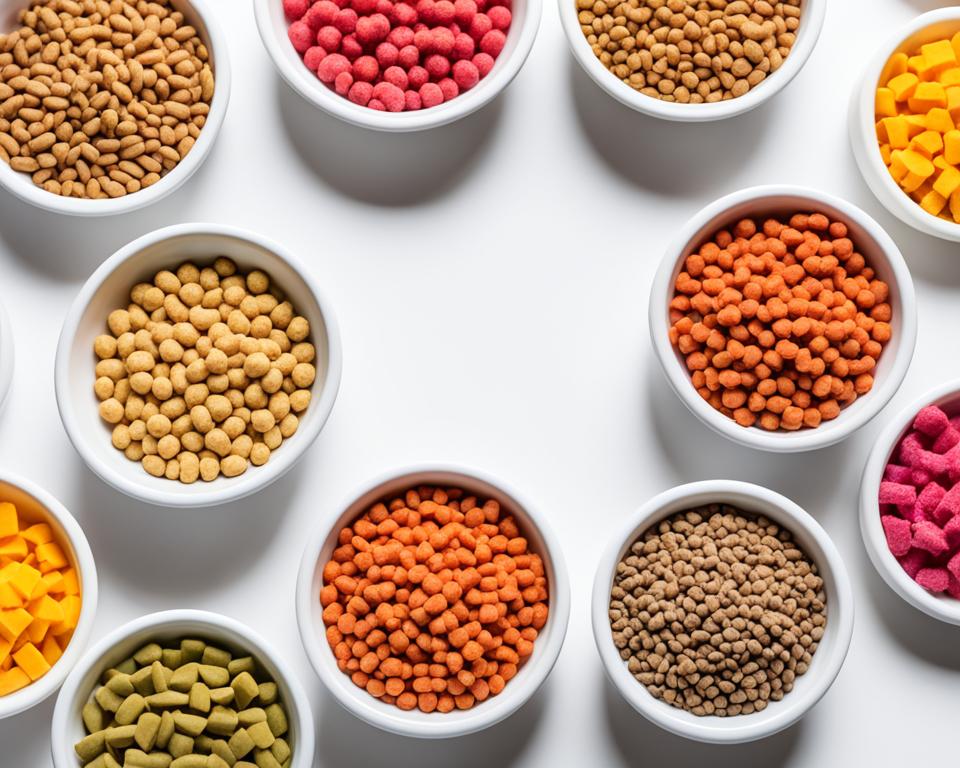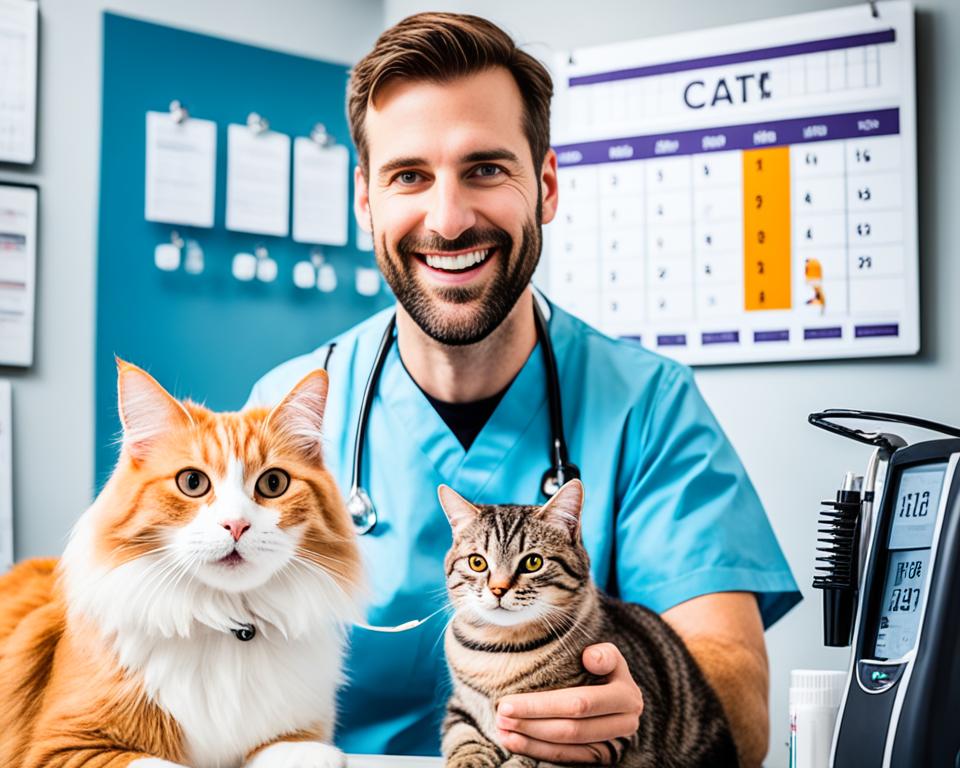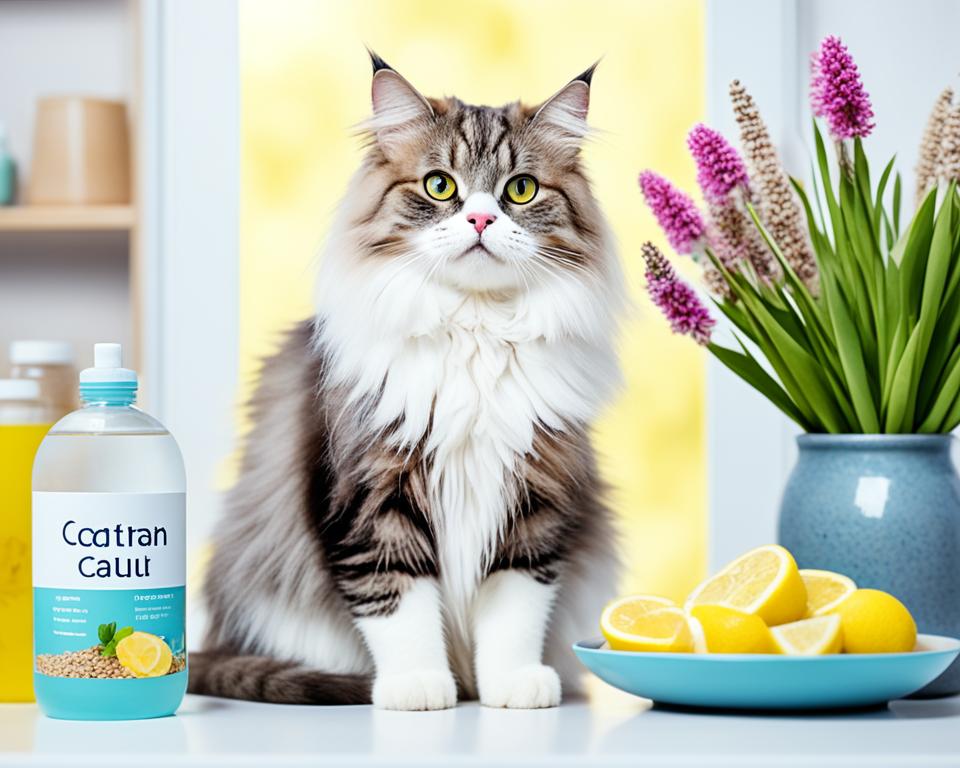As a cat owner, I know how vital it is to keep our feline friends healthy and happy. Regular care is key for their health and happiness. This includes grooming and vet visits.
Grooming is more than making my cat look good. It’s vital for their health. Brushing helps me spot skin issues early. It also strengthens our bond.
Annual vet check-ups are crucial for cat health. They keep my cat safe with vaccinations and protect against parasites. Pet insurance is also helpful for unexpected health problems.
Every cat is different. Knowing my cat’s breed helps me care for them better. It guides me on their diet and exercise needs. This knowledge improves their health.
Understanding the Basics of Feline Health

Keeping your cat healthy is key to a long, happy life. Knowing the basics of feline health helps catch problems early. Let’s look at some key parts of cat care.
Common Cat Health Issues
Cats face many health challenges. Issues like urinary tract infections, dental problems, and obesity are common. A balanced diet is key to preventing these problems. It keeps your cat at a healthy weight and boosts overall health.
Signs of a Healthy Cat
A healthy cat has bright eyes, a shiny coat, and lots of energy. Regular vet visits keep them in great shape. I’ve seen that my cat’s behavior shows her health. Any sudden changes could mean a problem.
The Importance of Preventive Care
Preventive care is crucial for your cat’s health. This means regular check-ups, shots, and keeping parasites away. Did you know indoor cats need a vet visit once a year? Cats over 7 should go twice a year.
| Preventive Care Measure | Frequency | Benefits |
|---|---|---|
| Veterinary Check-ups | 1-2 times per year | Early disease detection |
| Vaccinations | As recommended by vet | Disease prevention |
| Parasite Prevention | Monthly | Protects against fleas, ticks, worms |
| Dental Care | Daily brushing, yearly cleaning | Prevents periodontal disease |
Being proactive with your cat’s health saves money and worry. By staying informed and working with your vet, your cat can live a happy, healthy life.
Nutrition: The Foundation of Cat Health

Feline nutrition is key to your cat’s health. Cats need a balanced diet with many nutrients like vitamins, minerals, and fatty acids. Let’s look at how to feed your cat right.
Choosing the Right Diet for Your Cat
There are three main food types for cats:
- Dry food: Contains 6-10% water, cost-effective
- Semi-moist food: Contains about 35% moisture, mid-range cost
- Canned food: Contains at least 75% moisture, most expensive but highly palatable
Canned food is often better for cats because it has more moisture and nutrients. Cats are meant to eat foods high in animal proteins. Dry foods may not give them what they need.
Proper Hydration and Its Benefits
Drinking enough water is vital for cats. Cats’ natural food has a lot of water, unlike dry food. Drinking enough water keeps their urinary tract healthy and boosts overall health. I suggest giving your cat fresh water all the time. A pet fountain can make water more appealing to them.
Feeding Schedules and Portion Control
Feeding your cat at the same time every day and controlling how much they eat helps prevent obesity. Treats should be a small part of their diet, less than 10-15%. Talk to your vet to find out how much your cat should weigh and eat.
| Food Type | Water Content | Cost | Protein Quality |
|---|---|---|---|
| Dry Food | 6-10% | Low | Lower (often plant-based) |
| Semi-moist Food | 35% | Medium | Varied |
| Canned Food | 75%+ | High | Higher (meat-based) |
Your cat’s nutritional needs change as they grow and age. Always check the food labels to make sure they’re right for your cat’s age and health. Good nutrition is key to a happy, healthy cat.
Regular Veterinary Care and Check-ups

It’s super important to take your cat to the vet regularly. Every year, your cat needs a check-up to stay healthy. At Caring Hearts Animal Hospital in Matthews, NC, we do full health exams for cats.
Our team is full of experts who offer many preventive care services. This includes shots, dental care, help with weight and nutrition, and ways to stop parasites.
When you bring your cat in for a check-up, we suggest some tests. These are blood work, urine tests, and digital X-rays. They help us catch problems early, like dental issues, being overweight, arthritis, and heart issues.
“Prevention is better than cure, especially when something has no cure,” says Dr. Alex Avery.
How often your cat needs check-ups depends on its age:
- Kittens need many shots in their first year
- Adult cats (1-10 years) should go once a year
- Senior cats (11+ years) should go twice a year
Cats are great at hiding when they’re in pain. Regular health exams let us catch small changes early. This can save you money and keep your cat from suffering.
Don’t wait for a big problem. Call 704-893-2799 to set up your cat’s next check-up at Caring Hearts Animal Hospital. Your cat will be so grateful!
Cat Health: Essential Vaccinations and Parasite Prevention
As a cat owner, I know keeping our feline friends healthy is key. Vaccinations and parasite prevention are vital. The American Association of Feline Practitioners (AAFP) suggests core vaccines against diseases like feline panleukopenia virus and rabies. These shots start when kittens are six to eight weeks old and continue as they grow.
Core and Non-core Vaccinations
Core vaccines are a must for all cats. Non-core vaccines depend on the cat’s lifestyle and risks. For instance, the feline leukemia virus (FeLV) vaccine is key for kittens but might not be needed for low-risk adult cats. I always talk to my vet to find the right vaccination plan for my cat.
Flea, Tick, and Worm Prevention
Stopping parasites is also crucial for cat health. Fleas, ticks, and worms can lead to serious health problems. I use vet-approved products to keep my cat safe from these pests. This is crucial for outdoor cats or those who hunt. Even indoor cats can still face these issues.
Understanding FIV and Other Feline Diseases
FIV in cats, or Feline Immunodeficiency Virus, is a serious condition that weakens the immune system. There’s no vaccine for FIV, but regular vet visits can catch it early. Other diseases like feline infectious peritonitis (FIP) are rare but can be very serious. By staying informed and working with my vet, I can protect my cat from these dangers.

